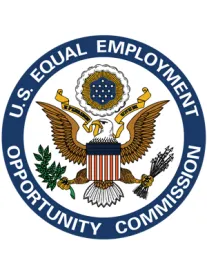The partial government shutdown continues. The shutdown has captured the attention of Washington politicians and the media, not to mention the hundreds of thousands of federal employees who are currently furloughed or working without pay.
For employers, the shutdown has some important implications. While the Department of Labor (DOL) and the National Labor Relations Board (NLRB) are fully funded through October 2019, the Equal Employment Opportunity Commission (EEOC) is not.
As a result of the lack of funding, the EEOC is closed until further notice.
WHAT DOES THAT MEAN FOR EMPLOYERS? A FEW THINGS:
- The EEOC will not begin processing new employment discrimination cases until it reopens.
However, the EEOC has been clear that the shutdown will not extend the statute of limitations for employees to file charges (300 days for Wisconsin employees). Employees who are close to the filing deadline are being encouraged to file charges by mail while the EEOC’s online portal remains closed to the public. Presumably, charges postmarked within the statute of limitations will be considered timely; however, this extra step may discourage some employees from filing claims.
- Deadlines assigned to employers cannot be ignored on account of the shutdown.
For example, a notice of charge dated December 21, 2018 with a position statement due date of January 21, 2019 cannot be ignored. Just as employees remain subject to the statute of limitations for their claims, so too are employers required to continue to meet their deadlines. If an extension is required, you should contact legal counsel as soon as possible. Generally, EEOC staff will not be able to respond to communications.
- Pending EEOC charges will be suspended during the shutdown.
This includes claims currently under investigation and those in the EEOC’s mediation program. Likewise, all EEOC litigation will be suspended except in cases where a continuance has not been granted.
- The government shutdown does not affect state law discrimination claims.
The Wisconsin Equal Rights Division (ERD) continues to accept discrimination claims, including those normally cross-filed with the EEOC. Employers must continue to respond to communications from the ERD.
Past experience suggests that if and when the EEOC reopens for business, there will be a significant backlog of cases to sort through. Employers should therefore expect the EEOC’s actions and communications to lag in 2019 as the agency works to get caught up on processing, investigating, and resolving cases.


 />i
/>i